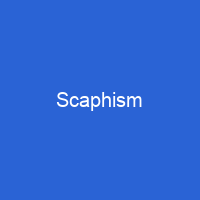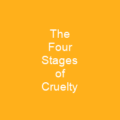What Is Scaphism?
Imagine a method of execution so gruesome that it has become synonymous with the darkest corners of human cruelty. This is scaphism, an ancient Persian practice where a victim was trapped between two inverted boats, their limbs and head exposed to the elements. The process involved feeding them milk and honey, which attracted swarms of flies, leading to a slow and agonizing death from infection and insect infestation.
The Origins of Scaphism
According to Plutarch’s account, scaphism was first used as punishment for Mithridates, who had killed his brother Cyrus. The method involved smearing the victim’s body with a mixture of milk and honey, which attracted flies that would settle on their face and body, causing intense pain and torment.
Plutarch described how this process was repeated daily, leading to an eventual death from infection or insect infestation. However, the credibility of Plutarch’s account is questionable due to his reputation for exaggerating stories.
The Controversy Surrounding Scaphism
Is scaphism a mere figment of ancient imagination, or does it hold a dark truth? The origins of this practice are shrouded in mystery and controversy. Some believe that Ctesias, a Greek physician and historian, first described the method, but his accounts have been criticized for their fanciful nature.
In modern media, scaphism has found its way into various forms of entertainment. In The Venture Bros., the torture device is depicted using tubs instead of boats, while podcasts like Instinct and Your Pretty Face Is Going to Hell’s include references to a demon selling boats for this purpose. The method has also been referenced in Blindboy Boatclub’s short story ‘Scaphism’ and Inside No. 9’s Season 8 episode.
The Psychological Impact of Scaphism
Can you imagine the psychological torment one must endure when faced with such a gruesome fate? The process of being slowly devoured by insects while trapped between two boats is not just physical torture but also a mental nightmare. The constant presence of flies and the sweet mixture that attracts them create an unbearable environment for the victim.
The daily repetition of this horrific act adds to the psychological trauma, making each day feel like an eternity. It’s no wonder why scaphism has become a symbol of extreme cruelty in human history.
Conclusion
Scaphism stands as a testament to the darkest depths of human cruelty and ingenuity in torture. From ancient Persian practices to modern media references, this method continues to haunt our imaginations. While its origins may be shrouded in controversy, scaphism remains a chilling reminder of the lengths humans can go to inflict suffering upon one another.

You want to know more about Scaphism?
This page is based on the article Scaphism published in Wikipedia (retrieved on November 28, 2024) and was automatically summarized using artificial intelligence.







